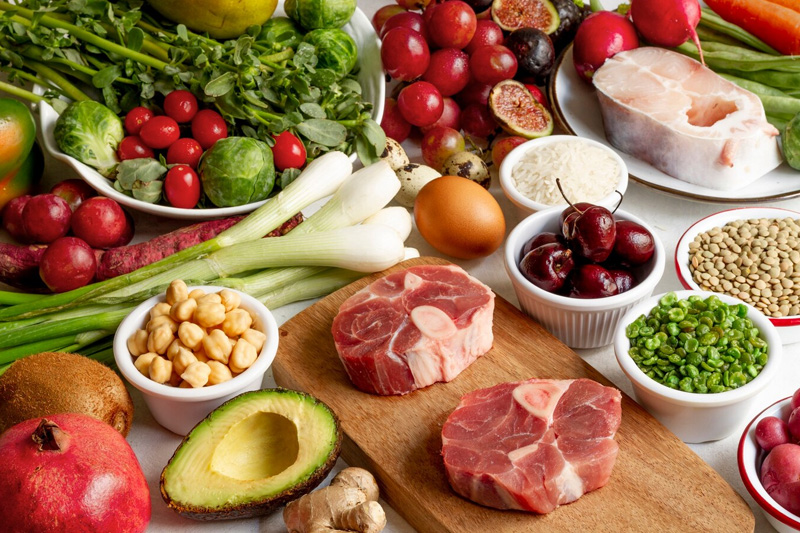In times of crisis and uncertainty, having access to reliable food sources is paramount for ensuring the well-being and survival of individuals and communities. Canned foods have long been recognized as a cornerstone of emergency preparedness, providing shelf-stable, nutrient-rich sustenance that can be stored for extended periods. In this blog post, we will delve into the crucial role of canned foods in emergency preparedness, exploring the manufacturing processes that make them resilient, the contributions of mushroom production technology, and offering valuable insights into their significance during times of crisis.
1. Shelf-Stable and Long-lasting:
Canned foods are renowned for their shelf-stable nature, which allows them to remain safe and nutritious for extended periods, even in adverse conditions. The canning process, which involves sealing food in airtight containers and subjecting them to high heat to destroy bacteria and enzymes, effectively preserves the contents and prevents spoilage.
This inherent stability makes canned foods ideal for emergency preparedness, as they can be stored for months or even years without refrigeration. Whether it's canned vegetables, fruits, meats, or soups, these pantry staples provide a reliable source of sustenance during emergencies when access to fresh food may be limited.
Insight: The shelf-stable nature of canned foods ensures they remain safe and nutritious for extended periods, making them indispensable for emergency preparedness.
2. Nutrient-Rich and Balanced:
Contrary to popular belief, canned foods are not only convenient but also nutrient-rich and balanced. The canning process locks in the nutrients present in fresh foods at the peak of their ripeness, preserving their nutritional value over time. Canned fruits and vegetables, in particular, retain essential vitamins, minerals, and antioxidants that are vital for maintaining health and vitality.
Furthermore, canned foods offer a balanced mix of macronutrients, including carbohydrates, proteins, and fats, ensuring individuals receive a well-rounded diet during emergencies. This nutritional completeness is crucial for sustaining energy levels, supporting immune function, and promoting overall well-being when faced with challenging circumstances.
Insight: Canned foods provide a nutrient-rich and balanced diet, essential for maintaining health and resilience during emergencies.
3. Accessibility and Convenience:
In times of crisis, accessibility and convenience are paramount considerations when it comes to food supplies. Canned foods offer unparalleled accessibility, as they are readily available in supermarkets, grocery stores, and emergency relief shelters across the globe. Their widespread availability ensures that individuals and communities can access essential sustenance when needed most, without reliance on perishable goods or complex preparation methods.
Moreover, canned foods are inherently convenient, requiring minimal preparation or cooking time. During emergencies, when resources such as water, fuel, and electricity may be limited, the convenience of canned foods becomes especially valuable, allowing individuals to quickly access nourishing meals with minimal effort.
Insight: The accessibility and convenience of canned foods make them indispensable for emergency preparedness, ensuring that individuals have access to essential sustenance during crises.
4. Versatility and Variety:
Canned foods offer remarkable versatility and variety, catering to diverse tastes, preferences, and dietary needs. From canned fruits and vegetables to meats, fish, beans, and soups, the range of options available ensures that individuals can create nutritious and satisfying meals tailored to their preferences.
Furthermore, canned foods come in a variety of portion sizes and packaging formats, allowing for flexibility in meal planning and consumption. Whether it's single-serving cans for individual meals or larger family-sized cans for communal dining, canned foods offer versatility to accommodate different household sizes and preferences.
Insight: The versatility and variety of canned foods enable individuals to create nutritious and satisfying meals tailored to their tastes and dietary needs during emergencies.
5. Contributions of Mushroom Production Technology:
Mushroom production technology plays a significant role in enhancing the resilience and nutritional value of canned foods. Mushrooms, with their unique flavor profile, texture, and nutritional benefits, are prized ingredients in canned soups, stews, sauces, and gravies.
Additionally, mushrooms contain natural compounds such as beta-glucans and antioxidants that support immune function and overall health. By incorporating mushroom extracts or derivatives into canned food formulations, manufacturers can enhance the nutritional profile and immune-boosting properties of their products, contributing to the resilience of individuals during emergencies.
Insight: Mushroom production technology enhances the nutritional value and immune-boosting properties of canned foods, making them even more indispensable for emergency preparedness.
Conclusion:
In conclusion, canned foods play a vital role in emergency preparedness, offering shelf-stable, nutrient-rich sustenance that is accessible, convenient, versatile, and resilient. The manufacturing processes that make canned foods shelf-stable, coupled with their nutrient-rich composition and widespread availability, ensure they remain a cornerstone of emergency food supplies. As we navigate an increasingly uncertain world, the importance of canned foods in ensuring the well-being and resilience of individuals and communities cannot be overstated. By recognizing their significance and incorporating them into emergency preparedness plans, individuals can better safeguard their health and well-being during times of crisis.



采访刊发中国罐头⾏业-01.jpg)

